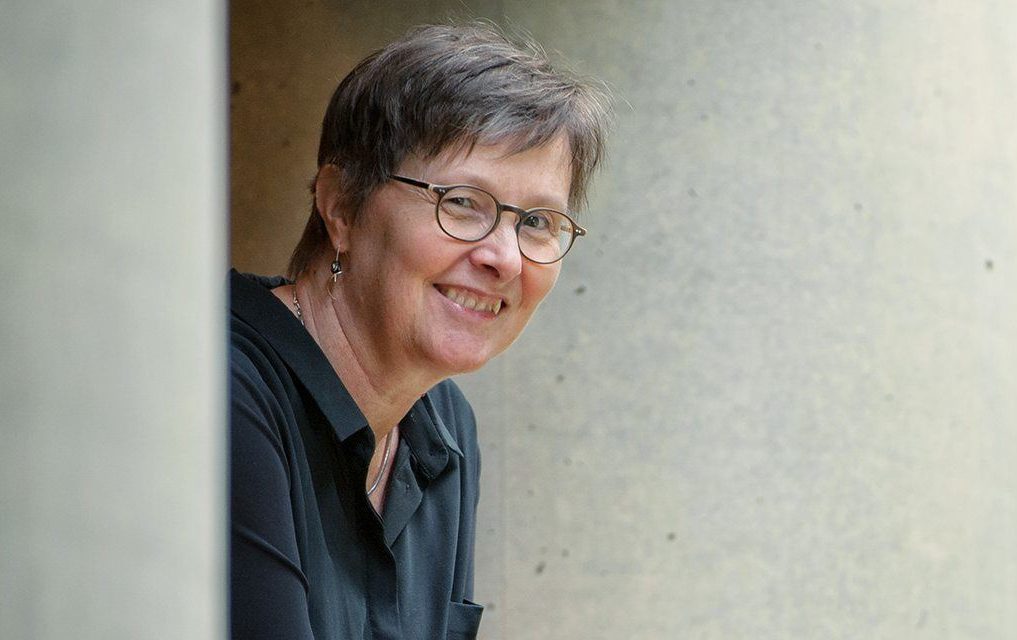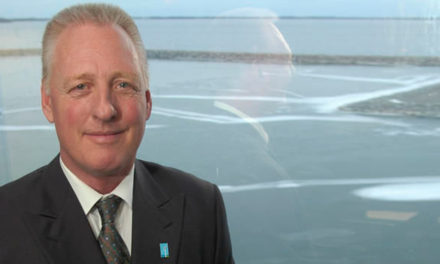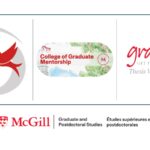by Susan Porter
The suspicion that human activity can impact the climate is an ancient one. In analyzing the increasing amount of data generated in the 19th century, the Swedish scientist Svante Arrhenius formulated a more specific hypothesis; that the burning of fossil fuels would raise the earth’s temperature. The story from there is a complex, tortuous one, moving from the discoveries of individual scientific teams to mounting public attention and the attraction of a vast array of stakeholders and disciplines as the early suspicions about climate change proved founded, and the problem turned wicked. Most of the seminal mid-20th century papers on the subject were published in scientific journals, authored by a small scientific teams, working from universities and research institutions. Although such work continues to be critical, a much larger, transdisciplinary, focus is now also essential as we struggle to mitigate and adapt to the ravages of human activity on our planet. The work of the Intergovernmental Panel on Climate Change (IPCC) exemplifies this ‘all hands on deck’ approach: Their Fifth Assessment Report was authored by 831 experts from universities, governments, NGOs and industry, representing a multitude of disciplines spanning the natural sciences to economics, engineering, and the health and social sciences. This arc typifies the framing of knowledge generation changes over the last half-century as a transition from a model that is primarily linear and discipline-based (mode 1, according to the work of Michael Gibbons), to one that is problem-based, transdisciplinary, multisectoral, and iterative (mode 2).
Among many attributes that were common to all those who made these impactful contributions to understand and address climate change was a deep understanding of their areas, an ability to think critically and creatively, a sense of responsibility and commitment to their scholarship, and aptitudes in communication and working with their peers. The development of these attributes, of course, is the traditional goal of graduate education. But at least some of the experts who contributed to the IPCC report needed more: They needed to understand how their field intersected, contributed to, and was enriched by other disciplines and approaches. They needed to communicate in ways that non-peers could understand and build on; many would have worked in numerous contexts over their working lives, and they needed to be adaptable to each, to integrate the zeitgeist of new environments and learn to make advances on problems with infinite variables and no single solutions. I and others argue that these abilities, the importance for which extend well beyond climate science and the tackling of wicked problems, can be challenging to develop through traditional models of graduate education, especially those involving single disciplines and sole authorship.
Daniel Coit Gilman, the first President of Johns Hopkins University, was a pioneer in the establishment of formalized research graduate education in North America. As he adopted the German model of the research PhD, he adapted it in ways that he felt met the needs of North American society more broadly. He warned against narrow technical specialization and the risk of developing graduates who had no understanding or connection to the society of which they were to be ‘wise, thoughtful, and progressive guides’. He noted that as society is constantly changing, the academy needs to keep pace with it: ‘Universities easily fall into ruts. Almost every epoch requires a fresh start.’
What is the fresh start needed for the 21st century? Apart from changes in the way knowledge is generated and mobilized, societal transformation is occuring on many fronts. Universities see their role increasingly as institutions engaged productively with the larger community; the millenial generation in particular is (arguably) characterized by pragmatic idealism and a deep desire to make the world better; graduate careers are increasingly diverse, and the workforce overall is moving from one characterized by linear job-based career trajectories to one of ever-changing portfolios. What should or could a research graduate program look like in light of these epochal changes? Should a critical (and assessed) learning outcome be the ability to communicate effectively with diverse audiences? Could students be encouraged in their research to include collaborations across disciplines and/or across societal sectors, and include multiple perspectives? Could they be assisted in making a tangible impact with their research if relevant, e.g. through policy development, inventions, or teaching? Should graduates be expected to have holistic understanding of their field and its significance and potential in broader scholarly and ‘real world’ domains?
If the answer to some or most of these questions is yes, I would argue that graduate education needs to be freshly imagined. Up to now, most attempts by universities to address some of the above needs usually involve the addition of elements that do not typically involve assessment of student learning or count towards the degree qualification; they are also not commonly integrated with students’ deepest learning. These ‘add-on’s are seen as helpful in developing skills that will complement the intellectual development gained through traditional scholarship. Where, though, do students routinely gain epistemological pluralism and rhetorical flexibility (different ways of knowing and arguing)? Where do they gain the practical and creative ‘intelligences’ that allow them to be experts at adapting and contributing to diverse environments and ways of working? Where are they challenged to profoundly reflect on the ethical dimension of the work and identities as scholars? When students do have opportunities to develop these, how do we know that they do so – or do so meaningfully?
Calls (by some) have gone out for some time to rethink graduate education from these perspectives; in particular, to rethink the learning and research that is integral to a graduate degree. In 1990, the American educator Ernest Boyer argued eloquently for a ‘more capacious’ understanding of scholarship for the professoriate. In addition to traditional ‘discovery’ research, he said, valued forms of scholarship should include those focused on forging connections aross disciplines and with non-experts, on productively bridging theory and practice, and on teaching the next generation of scholars. Several large projects in the US in the 2000s built on his work to advocate for similarly broadened conceptions of graduate education. More recently, McGills’ Paul Yachnin and others disseminated a white paper advocating for a replacement of the dissertation with an ensemble of projects oriented to ‘active participation in the world’; several disciplinary organizations (e.g., the Modern Language Association) have argued for similar changes; and the national graduate associations of Canada and the US (CAGS and CGS) have led numerous conversations and projects related to these goals.
The responses so far, however, have been primarily about more add-ons. Many universities have developed creative non-credit programming for career development, and major Canadian and US granting agencies support graduate training programs that require exposure to interdisciplinary and/or multisectoral perspectives (e.g., NSF IGERT, NSERC CREATE, NIH BEST). Learning from these latter experiences, however, does not have to be assessed or integrated into students’ primary research focus – the programs do not redefine what a graduate degree signifies. It’s not hard to come up with reasons why fundamentally reimagined graduation education has not caught on. Among these are the fact that universities are wholly dependent on the master-apprentice paradigm in the sciences (students are needed to pursue their supervisors’ line of research), and faculty are not rewarded for broadened scholarly contributions or mentorship; many view intellectual diversification as dilution, putting in peril the value and prestige of the PhD; and there is fear that students with broadened research perspectives and dissertations risk failing their defense or being shut out of the academic job market.
Glimmers of change are on the horizon, however. Universities (at least in North America) are increasingly accepting non-traditional dissertations, and some, like the University of Calgary, are actively promoting the value of broadened graduate scholarship and dissertations. At UBC, we are experimenting with this on multiple fronts. Our primary focus since 2015 is developing and running a program – called the Public Scholars Initiative (PSI) – designed to support doctoral students (financially, and through community and professional development) in broadening their dissertation scholarship in ways that meet this century’s needs. The scholarship of PSI students typically involves collaborations with partners external to the university (or sometimes in different domains of academia), and is oriented to tangible advances in societal good through transdisciplinary, problem-based research and knowledge mobilization. The last chapter of PSI scholar Sarah Munro’s dissertation, for example contains a policy brief developed with and for health authorities and clinicians (the recommendations of which are now being implemented) stemming from discovery work in understanding how women make childbirth decisions after having had Caesarean sections. PSI scholar Paige Olmsted’s dissertation on the role of financial incentives in environmental conservation efforts includes the report she wrote for the NGO she collaborated with. Several others are carrying out teaching and learning research in addition to that of their primary scientific focus, and will incorporate that work as chapter in their dissertations. So far, 115 doctoral students have been accepted into the PSI program, and over 10 have successfully defended their dissertations and have graduated.
Of all the outcomes of this program and the broader socialization of its principles, among the most moving and unexpected for me was the development in many PSI scholars of a rich professional identity and heightened sense of responsibility (‘I became something more than just a student’, ‘I began to understand the role of my work’, ‘It increased my awareness of societal responsibility’, ‘it broadened my view of what being a scholar means’). Many also expressed exhilaration about the opportunity to pursue what they felt most passionate about, and the validation of these pursuits by the academy (‘I feel more strongly about this project than any other I have worked on in my dissertation’, ‘it is some of the more meaningful work I will have done during my PhD’, ‘ it has been the highlight of my PhD’, ‘now I see a path that motivates me to continue my studies’). All external partners were enthusiastic about the collaboration, and most have already seen tangible benefits to the work.
Overall, we would say the experiment was a success in modelling expanded notions of graduate education. That said, not all faculty are on board with the concept, and not all students either want or have the opportunity to engage in these forms of research and learning. There is still much work to be done and innumerable challenges to overcome if these values are to be embodied more broadly. I believe the train has left the station, though, and we will only see increasing adoption of the principles espoused by Ernest Boyer and others, who saw broadened views of scholarly work as essential for the vitality of the academy and for the next generation of scholars.









